|
SCIENCE,
POLICY, AND CLIMATE CHANGE
The Future of Massachusetts
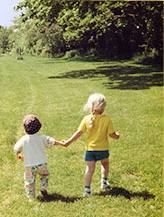 Why does Mass Audubon care so much about the effects of global
warming? Why does Mass Audubon care so much about the effects of global
warming?
For starters, nearly everything we do will be impacted by
climate change. Many birds that we love could lose their breeding grounds,
some wildlife that calls our state home might not be able to survive here, the habitat we work so hard to protect could be altered significantly, and the health of our
residents may suffer.
This is why we are continually coming
up with ways to help reduce our ecological impact — and the impact of our members.
You can help too.
Find out what steps Mass Audubon has taken and tell us how you've gone green.
PROGRAM NOTES
Top 5 Ways to Preserve Herbs
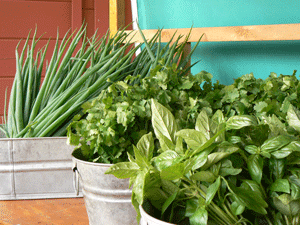
Ever wonder what to do with the abundance of basil,
rosemary, cilantro, and sage growing in your garden — especially when the season comes to an end?
Instead of letting them go to waste, this season preserve your herbs to
enjoy throughout the year.
Learn five easy preservation techniques (and find the programs that will teach you more) >>
SNAPSHOT
Where in Mass Audubon Are We Now?
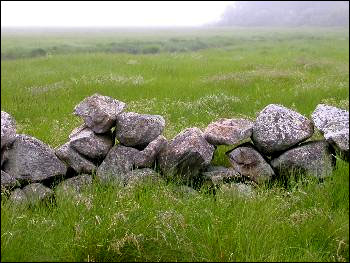
In the last Explorations, we asked where a photo was taken in the Mass Audubon community. We were thrilled that so many of you identified the photo (taken by Richard Johnson) from High Ledges Wildlife Sanctuary in Shelbourne.
Ready to guess another Mass Audubon sanctuary?
Hint: The photo
above was captured at the sanctuary where you can get an incredible view of the Elizabeth Islands and it sits next to Mass Audubon's very first
conservation restriction. Email us your guess by September 6 and you could win a pocket field guide.
GET INVOLVED
 More Bitter Than Sweet More Bitter Than Sweet
Just because it's green, doesn't mean it's good. Case in point:
Oriental Bittersweet. This non-native, invasive species was
originally brought to this country for landscaping.
Unfortunately,
it thrives a little too well and tends to smother and kill native
species. Property managers at Mass Audubon sanctuaries across the state
are on the frontlines in the battle against invasives like bittersweet
and they're always in need of volunteers.
Learn more about bittersweet and find out how you can join the fight against invasives.
 |
|
BUG BRIEF
Lovely Ladies
For something so small, the ladybug has a big impact. These
omnivorous insects feast on those pesky aphids that harm maple, pine, and fruit trees. In fact, they can munch up to 150 aphids a day.
While good for the garden, when ladybugs start their annual home invasion come September, they may quickly wear out
their welcome. The good news: ladybugs are completely harmless and will soon disappear. If you can't wait that long, read our tips on how to get rid of them.
Pop quiz: What kind of ladybug likes to winter in your home’s
walls? >>
|

|
BIRDS & BIRDING
Save Birds by Drinking ... Coffee?
 You've heard about Fair Trade and Shade Grown, but did you now your morning Joe can be bird friendly, too? Enter Birds & Beans,
a Massachusetts-based gourmet coffee company whose beans are triple
certified: 100 percent Organic, Fair-Trade or Rainforest Alliance
approved, and certified Bird Friendly®. You've heard about Fair Trade and Shade Grown, but did you now your morning Joe can be bird friendly, too? Enter Birds & Beans,
a Massachusetts-based gourmet coffee company whose beans are triple
certified: 100 percent Organic, Fair-Trade or Rainforest Alliance
approved, and certified Bird Friendly®.
Not only is the coffee artisan roasted, but each month our Important Bird Areas (IBA) Program
will receive $1 for every online Birds & Beans customer in Massachusetts.
Find out how you can help save the birds every morning >>
|
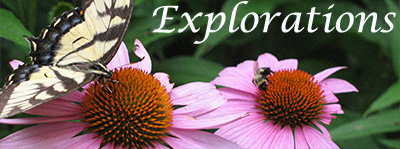
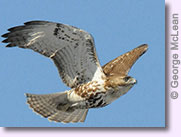




 Why does Mass Audubon care so much about the effects of global
warming?
Why does Mass Audubon care so much about the effects of global
warming? 



 You've heard about Fair Trade and Shade Grown, but did you now your morning Joe can be bird friendly, too? Enter Birds & Beans,
a Massachusetts-based gourmet coffee company whose beans are triple
certified: 100 percent Organic, Fair-Trade or Rainforest Alliance
approved, and certified Bird Friendly®.
You've heard about Fair Trade and Shade Grown, but did you now your morning Joe can be bird friendly, too? Enter Birds & Beans,
a Massachusetts-based gourmet coffee company whose beans are triple
certified: 100 percent Organic, Fair-Trade or Rainforest Alliance
approved, and certified Bird Friendly®. 